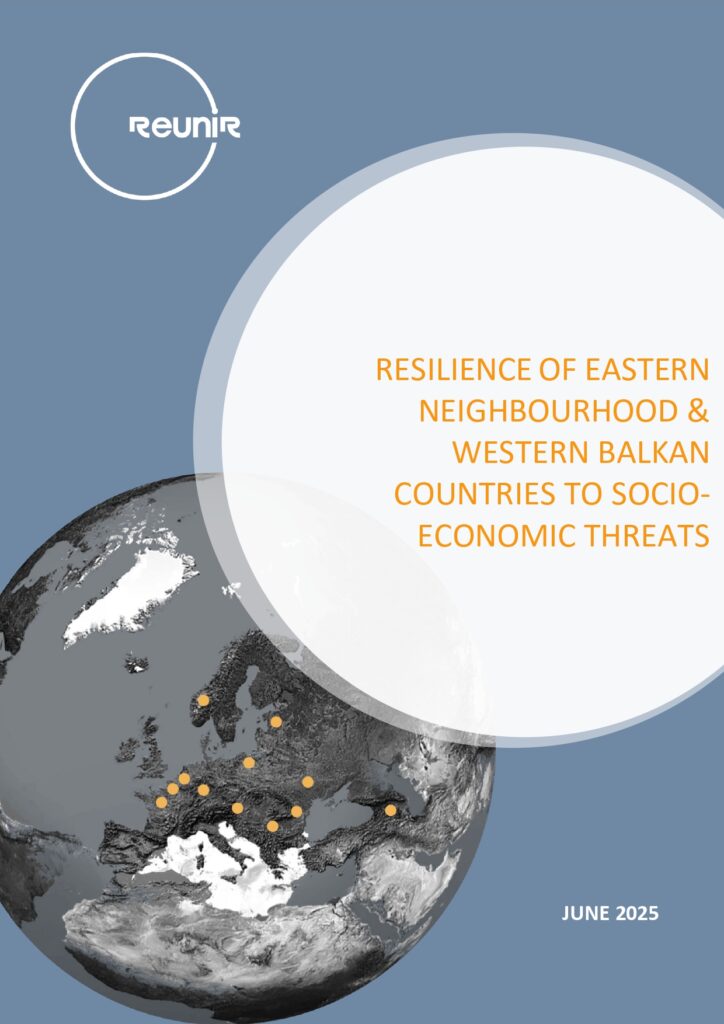Executive summary
This Working Paper assesses the socio-economic resilience of the Eastern Neighbourhood Three (EN3) and Western Balkan Six (WB6) countries. The paper defines socio-economic resilience as a country’s ability to withstand socio-economic shocks, cope with socio-economic threats and recover in a sustainable manner, including with the EU’s assistance. The assessment first analyses the socio-economic structures and vulnerabilities of the WB6 and EN3 countries; then reviews the EU’s toolbox for resilience building and finally evaluates their resilience against mapped socio-economic threats. Using a three-tiered framework (low, medium, high resilience), the paper categorises the resilience of each of the WB6 and EN3 countries per threat instrument employed by third states, including the weaponisation of economic interdependencies, irregular migration, and fuelling corruption.
The analysis is based on both quantitative and qualitative assessments. The quantitative assessment covers key economic indicators that reflect the level of socio-economic resilience in the EN3 and WB6 countries. The qualitative assessment combines desk research with stakeholder consultations, incorporating insights
from interviews and focus groups conducted during fieldwork in the EN3 and WB6 countries. Overall, the analysis highlights that the EN3 and WB6 countries display varying degrees of resilience. Many remain exposed to external threats that can undermine their socio-economic stability and EU integration. Across both regions, a combination of energy dependence, foreign strategic investments, and corruption remains a persistent and significant threat to resilience. Among the WB6, Montenegro, and among EN3, Georgia, exhibit low resilience across all identified threat instruments, while other countries also show medium and high resilience against the mapped socio-economic threats. EU tools – such as financial support, easing Single Market access, and help in building energy autonomy –play an essential role in bolstering resilience, especially during crisis. However, the temporary nature of some of the EU’s support instruments and the lack of proper domestic socio-economic policies across the EN3 and WB6 undermine the lasting effects of resilience building. Concerns remain around the absorption capacity of EU support, particularly in the WB6, and the application of conditionality of the newly launched Facilities.

